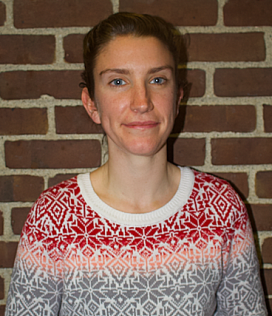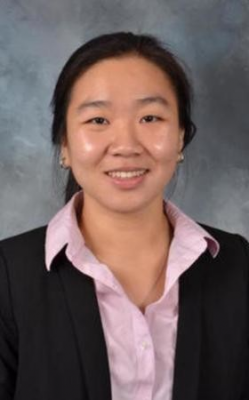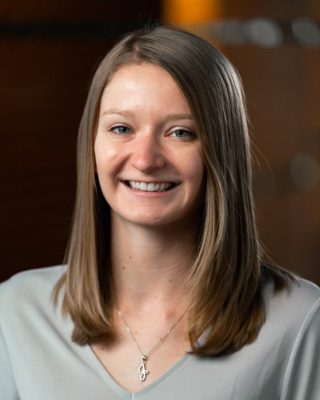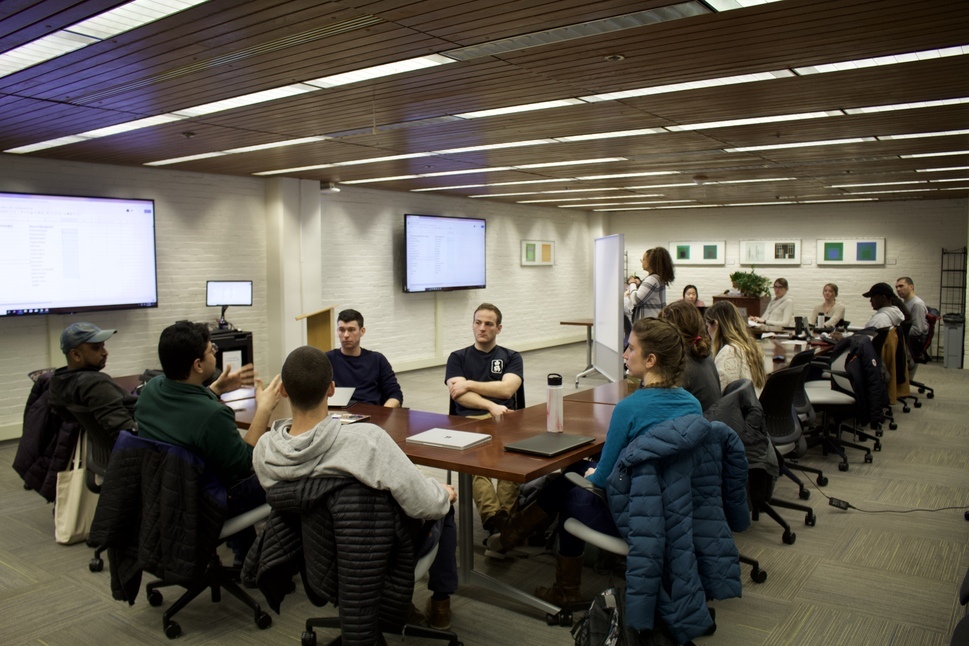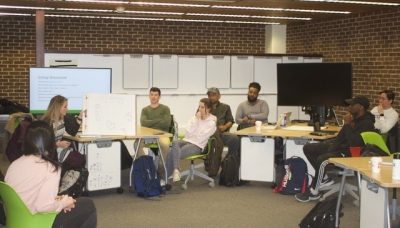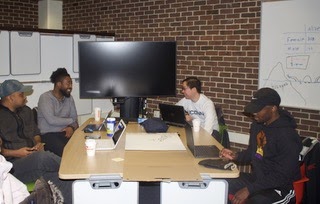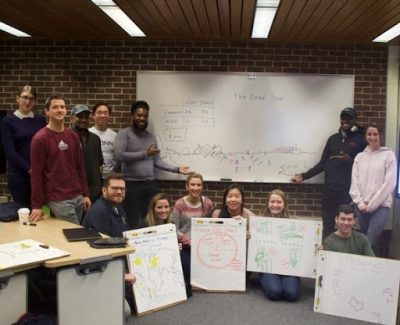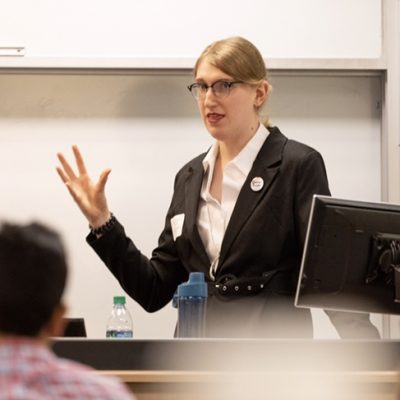
By: Allison O’Donnell, Written Communications Specialist, UConn School of Engineering
Anna Marie LaChance is a third year PhD student in the Department of Chemical Engineering who is graduating from John Lof Leadership Academy this year.
Currently, Anna researches nanocomposite materials in Dr. Luyi Sun’s lab. She is also in the Graduate Certificate in College Instruction (GCCI) program to prepare for a career in academia, hoping to become a faculty member one day.
Anna educates others through the medium of her podcast, Rule 63– where she and her friend Danny discuss LGBTQ+ topics, science, religion, and politics. Since 2012, she has been invested in politics- in her own words, “Primary season is my March Madness and election night is my Super Bowl.” This interest has grown since her undergraduate years and transition in late 2017.
Her identity as a trans person also translates to campus involvement- Anna is a member of the Rainbow Center Grads and Young Professionals group, the UConn chapter of Out In. STEM (oSTEM) and has been working on bringing a new outreach program, Queer Science, to UConn. The club will be focused on outreach to high school students that identify as queer and are interested in pursuing a degree in STEM.
In her own STEM education, Anna noticed there was a gap between job training and job expectations- extracurriculars are often overlooked when students reach graduate education. “In the real world, whether you’re going to industry, academia or other, you’ll have to lead a team, you’ll have to talk to people, you’ll have to network and do all these other things—that’s just not taught to graduate engineering students.”
JLLA’s program has a “For us, by us” structure that appealed to her and created a space to develop non-technical leadership skills, essential for strong leadership. Coming into the program, Anna knew she was a nervous presenter and wanted to change that. Now, Anna considers herself to be a confident speaker.
Receiving feedback from JLLA provides advice “you wouldn’t get from your lab mates who are focused on the technical content of your talk, if you were to practice in front of them. So I wish there were more programs like this at schools everywhere and in departments everywhere.”
Anna has developed a bond with the JLLA members, who she says “have helped me to make myself a better version”. Creating and maintaining these personal connections with her colleagues is important to her, which is why she’s also the Vice President of the Chemical & Biomolecular Engineering Graduate Student Association (CHEGSA), a student organization that hosts social and professional events for the graduate students, faculty, and staff of her department.
Anna regularly posts to her social media, including Twitter (@ThatAnnaMarie) and Instagram (@BourgeoisDecadence). She plans to take the lessons she learned in JLLA to other diverse communities within STEM, including her current undergraduate laboratory assistants, queer & trans youth in Connecticut through Queer Science, and all of her future teaching endeavors.
